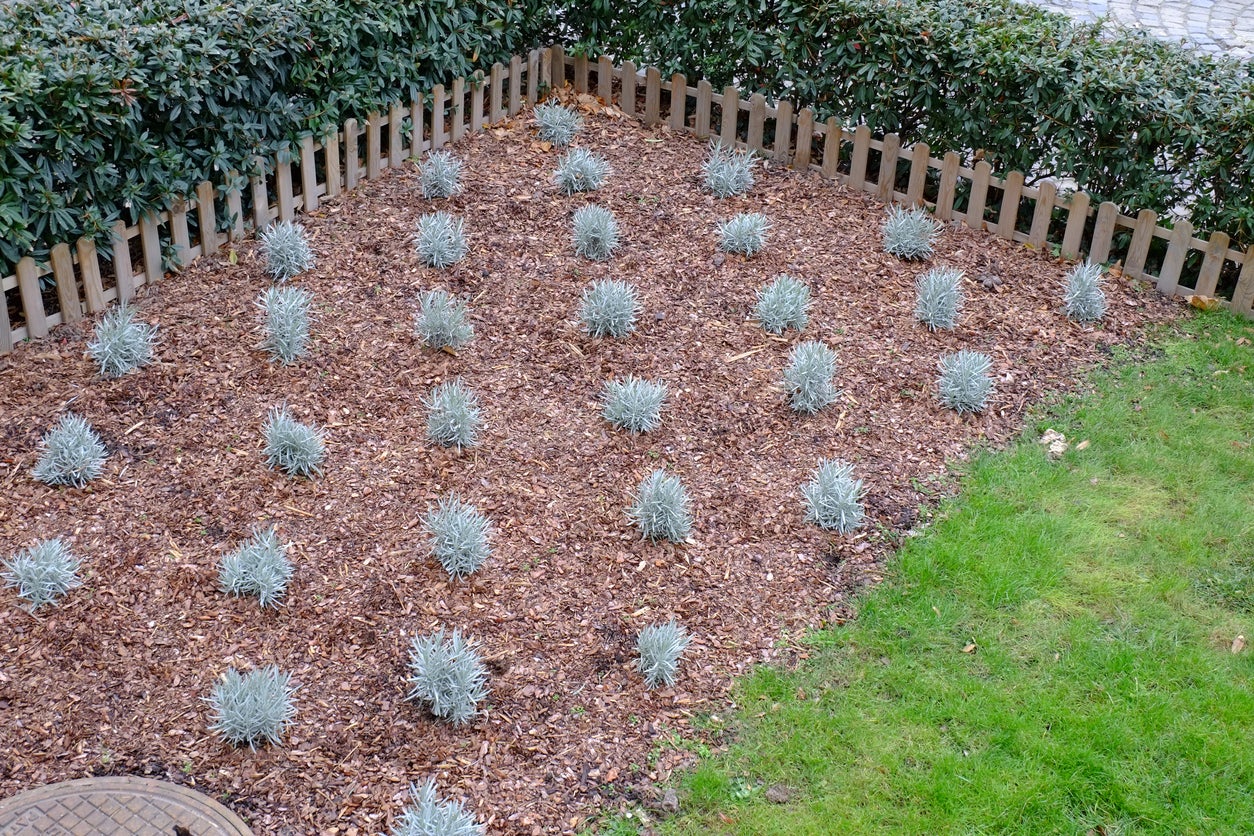Does Groundcover Need Mulch – Choosing Mulch For Groundcover Plants


Sign up for the Gardening Know How newsletter today and receive a free copy of our e-book "How to Grow Delicious Tomatoes".
You are now subscribed
Your newsletter sign-up was successful
Low growing plants make perfect natural groundcover which can prevent weeds, conserve moisture, hold soil, and have many more uses. When installing such plants, you may wonder, should you mulch groundcovers? The answer depends on the site, speed with which the plants will grow, your growing zone, and soil stability. Mulch for groundcover plants can help protect little starts in some situations but it isn't necessary in other cases.
Should You Mulch Groundcovers?
Does groundcover need mulch? This oft asked question has a couple of answers. The benefits of organic mulch are numerous and the only drawback would be when planting seed, which may have difficulty pushing up through the mulch. Although, mulching around groundcover isn't strictly necessary either. Most plants will establish just fine without any mulch at all but using it could ease your maintenance routine.
The whole idea behind groundcover is to give a natural carpet of low maintenance plants. Selecting the right plants, spacing them correctly, and providing good basic care at the beginning will result in good coverage over time.
The soil should be acceptable to the plants and the site should have adequate light. Using mulch for groundcover plants may reduce the amount of weeding you have to do and lower the amount you have to water. For many gardeners, these are enough reasons to spread some sort of mulch around establishing groundcover.
Mulch doesn't have to be fancy either. You can contact a tree removal service and often they will allow you to have some of their chipped material for free.
Mulching Around Groundcover in Tricky Sites
Hills and areas with limited access should be mulched. The mulch will help stabilize soil as young plants get their foothold. Without mulch, there is a risk of erosion, which can expose new plants and ruin their health. In areas without a sprinkler system, it saves time and water by reducing the amount you have to hand water.
Another benefit of an organic mulch, such as bark, is that it will gradually rot into the soil, releasing important vitamins and minerals upon which young plants can feed. There are also inorganic mulches available, many of which are made of recycled items.
Sign up for the Gardening Know How newsletter today and receive a free copy of our e-book "How to Grow Delicious Tomatoes".
Tips for Mulch Around Groundcovers
Should you decide it is to your benefit to mulch, select between organic and non-organic. A non-organic might be plastic or recycled tire bits. These perform the same functions as an organic mulch but do not release nutrients and can be difficult for plants with runners or stolons to grow through. Additionally, they may release some toxins as they break down over time.
Good organic mulch has none of these drawbacks. Apply 2 inches (5 cm.) around the plant, leaving some space free of mulch at the stem areas. This will prevent buildup of moisture or hidden fungi that could harm the groundcover.

Bonnie Grant is a professional landscaper with a Certification in Urban Gardening. She has been gardening and writing for 15 years. A former professional chef, she has a passion for edible landscaping.